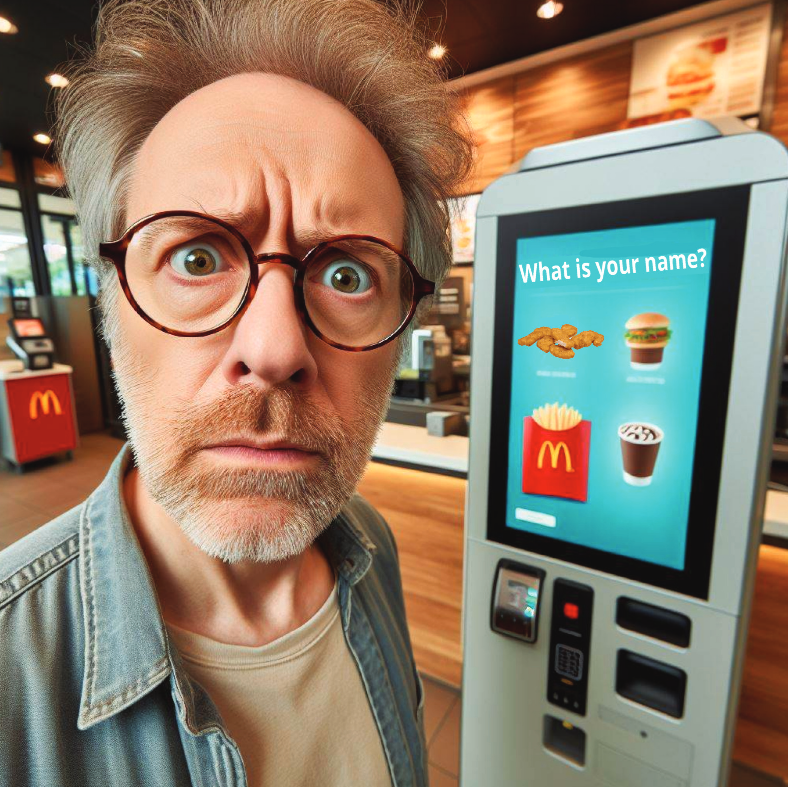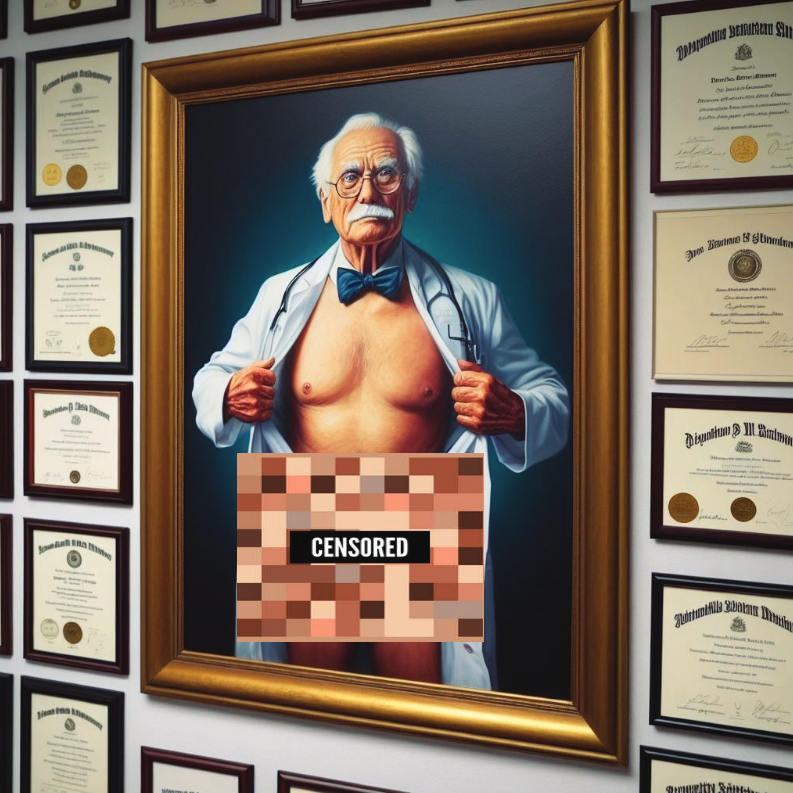
I was born in 1973, so technically I guess that makes me Generation X. However, reading some reviews of how automated kiosks are supposed to revolutionize the fast food industry and streamline everything if it weren’t for those pesky Baby Boomers that have problems adapting to technology, you would think I’m a member of that generation instead. If CEOs and CFOs are to be believed, the one thing that stands between fast lines, accurate orders, and an overly positive dining experience, not to mention hefty profits for their share holders, is the sad elderly generation that is intent on fumbling through technology and failing to grasp new and terrific ideas.
I actually don’t think that’s entirely accurate. What if I told you these things aren’t a way to make your life easier or to make your orders any more accurate, at least not in the grand scheme of things. They are another cog in the machine to make us less human, connecting with no one, spending our money, and keeping our mouths shut while going to work for a class of people that don’t need to work themselves or ever look at a fast food menu in their entire lives.
Now, I know the counter-arguments, pun intended, to a resistance to these machines, but let me address each of them one by one.
1. “But Hiram, the front-counter is usually manned by some idiot teenager or someone that doesn’t speak the same language as you, how is this kiosk system not a better alternative?”
It’s absolutely true that the person taking your order often seems as dumb as the cheeseburger that you’re about to shove into your face, which will most likely come with pickles on it even though you specifically said twice that you’d rather have dog poop on a burger than pickles. But the important part of this interaction is that it’s with a person. Talking to people is what creates a society, for good or for bad.
I could see an argument for offering the kiosks as an alternative to talking to a person in case you’re in a rush or a curmudgeon, but replacing the front counter experience entirely with a machine that silently takes your order for you breaks down society just a little bit more. Every incremental step, whether it’s the automation of bank tellers, supermarket checkouts, or toll booths, brings us a step closer to each being in our own little manageable bubble, consuming through life alone, making someone else rich so that they can enjoy their family and friends in conversation and banter.
2. “But Hiram, these companies save money by replacing the salaries of workers with these automated kiosks. Prices are sure to go down as a result of their use, right?”
You’re right that the companies will save money in the long run, but why would you think they’d be passing the savings on to you? These companies have gradually increased the wages of their unskilled workers to almost 20 dollars per hour from around 7 dollars just 10 years ago, which sounds great at first glance, but they’ve been raising their prices to cover it. Now they’re replacing those unskilled workers with machines that have a one time cost, but so far we’ve only seen prices increase further. Sure, there are other inflationary factors that we see in the economy as a whole, but raising the prices to cover the cost of a work force that is no longer there is just means for companies to make more profit.
And it’s not just the price of burgers that is going up as a result of all this. In fact, fast food companies are entering a system that ultimately may result in people and politicians to call for a universal basic income, as millions of displaced workers will no longer have means to support themselves. Even moreso than the increased wages, free money may sound great at first glance, but this aid comes from taxed income and is redistributed. So even if you are a skilled worker, comfortably sitting in the middle class for now, you’re paying more for basic sustenance and you’re soon going to be taxed heavier because these big companies no longer have positions to offer workers.
3. “But Hiram, these things offer a contactless alternative to dealing with disease infested humans.”
Shut up. That’s dumb.
4. “But Hiram, they also don’t take cash at any of these kiosks, thereby decreasing the need for coming into contact with anything handled by disease infested humans.”
This is not a selling point. Cash allows people to spend their money where they want, when they want, and for what they want, and it’s supposedly required by law to be accepted anywhere within the principality for which its printed. Any system that devalues the need for cash, is an attempt to get rid of it, and should be viewed with extreme caution.

This could all be seen as a cry for tradition instead of progress, but really what it is is a cry for the free market. If you’re like me, and the exclusive use of these machines seems a little weird to you, don’t visit the places that are forcing you to do it. We can make our voices heard through the spending of our money. The more we just accept changes that break down society little by little, the faster these changes will come. Though these kiosks seem to offer some immediate benefits, they are going to cost you more in the long run.
Hiram Glassman




